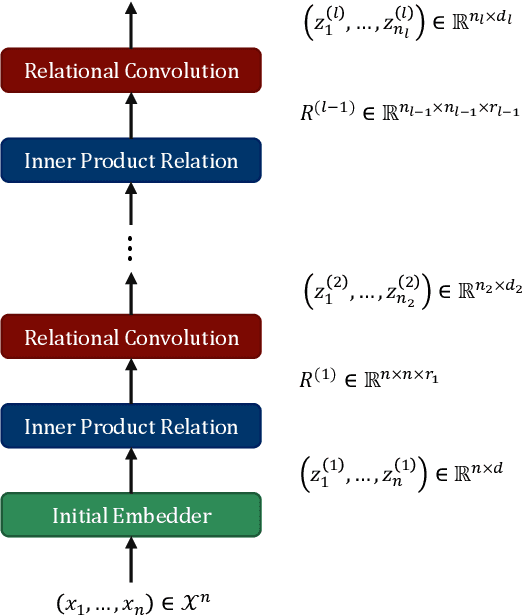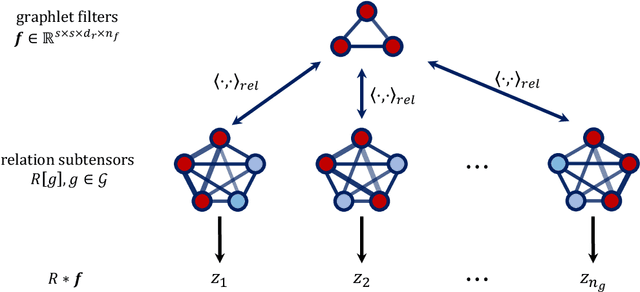Relational Convolutional Networks: A framework for learning representations of hierarchical relations
Paper and Code
Oct 05, 2023



A maturing area of research in deep learning is the development of architectures that can learn explicit representations of relational features. In this paper, we focus on the problem of learning representations of hierarchical relations, proposing an architectural framework we call "relational convolutional networks". Given a sequence of objects, a "multi-dimensional inner product relation" module produces a relation tensor describing all pairwise relations. A "relational convolution" layer then transforms the relation tensor into a sequence of new objects, each describing the relations within some group of objects at the previous layer. Graphlet filters, analogous to filters in convolutional neural networks, represent a template of relations against which the relation tensor is compared at each grouping. Repeating this yields representations of higher-order, hierarchical relations. We present the motivation and details of the architecture, together with a set of experiments to demonstrate how relational convolutional networks can provide an effective framework for modeling relational tasks that have hierarchical structure.
 Add to Chrome
Add to Chrome Add to Firefox
Add to Firefox Add to Edge
Add to Edge